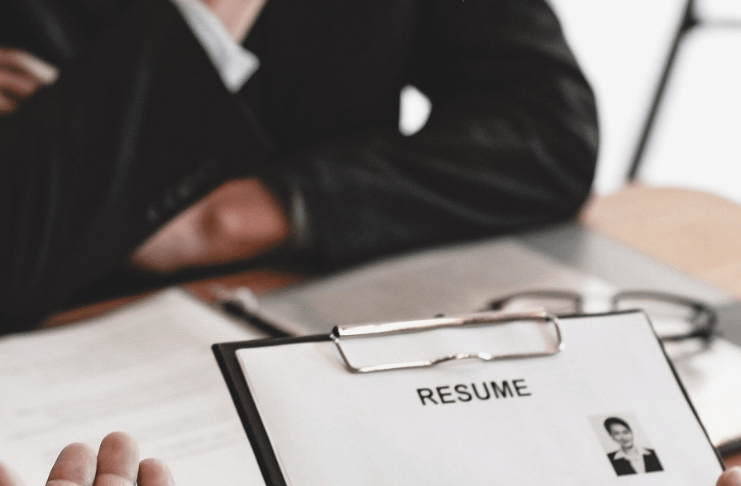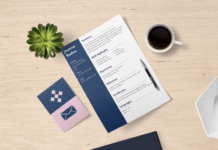Getting ready for an interview is a pivotal moment in your career journey. It’s that crucial opportunity where your skills, experiences, and personality intersect with a potential employer’s needs and expectations.
Thorough preparation is vital to ensure your success in these high-stakes situations. In this guide, we will walk you through the essential steps and strategies to help you ace your interviews and leave a lasting impression on your prospective employers.
Research and Company Knowledge
Research and company knowledge are the foundations of interview success. Let’s delve into these essential aspects:
Understanding the Company and Its Culture:
- Company Culture: Know the company’s values and culture to gauge compatibility.
- History and Background: Understand the company’s history and milestones.
- Mission and Values: Align your responses with the company’s goals.
Researching the Specific Job Role and Its Requirements:
- Job Description: Analyze responsibilities, qualifications, and skills.
- Company Website: Look for role-related projects and developments.
- LinkedIn: Research key employees for insights.
- Industry Trends: Stay updated on relevant trends.
These concise points emphasize the importance of company and job role research for interview success.

Resume and Cover Letter Preparation
Your resume and cover letter are your first chance to make a positive impression on potential employers. Crafting these documents effectively is crucial in securing an interview.
Here, we break down the critical aspects of resume and cover letter preparation to help you present yourself as the ideal candidate for the job.
Tailoring Your Resume to the Job Description
- Highlight relevant skills and experiences that align with the job requirements.
- Customize your resume for each application to demonstrate your suitability for the specific role.
Crafting a Compelling Cover Letter
- Write a personalized cover letter that showcases your enthusiasm for the position.
- Explain why you’re the perfect fit and how you can contribute to the company’s success.
By focusing on these aspects, you’ll create a resume and cover letter that effectively communicate your qualifications and enthusiasm, increasing your chances of securing an interview.
Common Interview Questions
Facing common interview questions is a critical part of interview preparation. To help you shine in your following interview, let’s explore these two key aspects:
Preparing for Frequently Asked Interview Questions:
- Be ready for commonly asked questions like “Tell me about yourself” and “What are your strengths and weaknesses?”
- Practice concise, structured responses to these questions to demonstrate your suitability for the role.
Using the STAR Method for Behavioral Questions:
- Understand the STAR method (Situation, Task, Action, Result) for answering behavioral questions.
- Use this method to provide specific examples of past experiences that showcase your skills and competencies.
By mastering these aspects, you’ll be well-prepared to tackle various interview questions and impress your potential employers with your responses.
Elevator Pitch
An elevator pitch is your brief, impactful self-introduction. It’s a vital tool for making a memorable first impression. Here, we’ll explore the critical elements of a successful elevator pitch:
Creating a Concise and Impactful Self-introduction:
- Craft a brief introduction that highlights your key strengths and accomplishments.
- Make it engaging and memorable to capture the listener’s attention quickly.
Highlighting your Strengths and Qualifications:
- Focus on your unique selling points and what sets you apart from others.
- Tailor your pitch to the specific job or situation to make it relevant and compelling.
Mastering these aspects will enable you to confidently and effectively present yourself in various professional settings, leaving a lasting impression on those you meet.
Dressing for Success
Your attire can significantly impact the impression you make in an interview or professional setting. Dressing appropriately is a key element of success. Here, we’ll discuss essential aspects of dressing for success:
Choosing Appropriate Interview Attire:
- Select clothing that aligns with the company’s dress code and culture.
- Ensure your outfit is well-fitted, clean, and free from distractions.
The Significance of First Impressions:
- Understand that your clothing is a powerful non-verbal communication tool.
- Dressing professionally and confidently can enhance your credibility and confidence.
By considering these aspects, you’ll project a polished and professional image that contributes to your overall success in interviews and professional interactions.
Mock Interviews and Practice
Practice makes perfect, and mock interviews are invaluable tools to refine your interview skills. They help you gain confidence, improve your responses, and make a strong impression. Here, we’ll explore the key benefits of mock interviews and how to use them effectively:
Conducting Practice Interviews with a Friend or Mentor:
- Simulate real interview scenarios with a trusted individual.
- Receive constructive feedback on your answers, body language, and overall performance.
Improving Non-verbal Communication and Body Language:
- Pay attention to your posture, eye contact, and gestures during mock interviews.
- Practice conveying confidence and professionalism through your non-verbal cues.
Engaging in mock interviews and focused practice sessions can significantly enhance your interview skills, making you better prepared for the real thing.
Interview Day Logistics
Proper logistics on the day of your interview are crucial for a stress-free experience. Smoothly navigating the practical aspects ensures you can focus on presenting yourself confidently. Here, we’ll address the key elements of interview day logistics:
Confirming Interview Location and Time:
- Double-check the interview location and ensure you know how to get there.
- Be aware of the interview time and any time zone differences.
Preparing All Necessary Documents and Materials:
- Ensure you have multiple copies of your resume, cover letter, and requested documents.
- Pack additional materials, such as a notepad and pen, as needed.
By attending to these logistical details, you’ll set yourself up for a successful and stress-free interview day.
Interview Success: From Preparation to Post-Interview Reflection
The day of the interview can be both exciting and nerve-wracking. How you handle this crucial day and your performance during and after the interview are pivotal to your success. Let’s delve into these aspects:
The Day of the Interview
The day of the interview has arrived, and it’s all about punctuality, professionalism, and managing nervousness.
Punctuality and Professionalism:
- Arrive on time, showing respect for the interviewer’s schedule.
- Maintain a professional demeanor throughout the day.
Building Confidence and Managing Nervousness:
- Boost your self-confidence with positive self-talk and deep breaths.
- Employ strategies to manage nerves and maintain composure.
During the Interview
During the interview, your ability to actively engage, ask insightful questions, and effectively showcase your skills will be pivotal in leaving a lasting and positive impression on your prospective employer.
Active Listening and Engagement:
- Pay close attention to the interviewer’s questions and comments.
- Engage actively in the conversation to demonstrate your interest.
Asking Thoughtful Questions and Showcasing Your Skills:
- Pose insightful questions about the role and company.
- Use the opportunity to highlight your skills and experience effectively.
After the Interview
After the interview, your actions and reflections are essential for maintaining professionalism and learning from the experience.
Sending a follow-up thank-you email:
- Express gratitude for the interview opportunity promptly.
- Reinforce your interest and appreciation for the chance to interview.
Self-assessment and learning from the experience:
- Reflect on your performance and areas for improvement.
- Use the interview experience as a learning opportunity for future interviews.
Conclusion
In conclusion, interview success hinges on meticulous preparation. From researching the company to perfecting your elevator pitch, dressing appropriately, and managing logistics, every step counts.
By prioritizing these aspects and honing your interview skills, you boost your chances of securing the job and advancing your career.
Keep in mind that success in interviews comes with practice, dedication, and a commitment to self-improvement.









